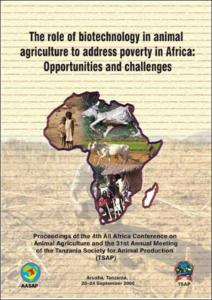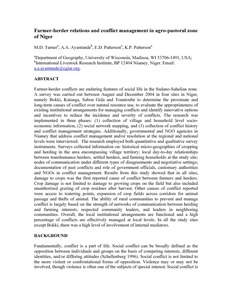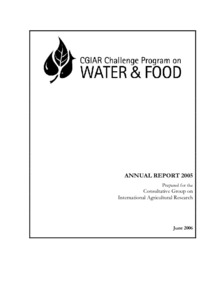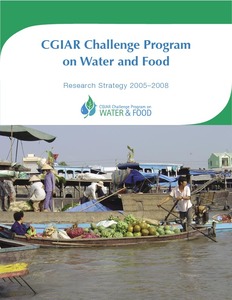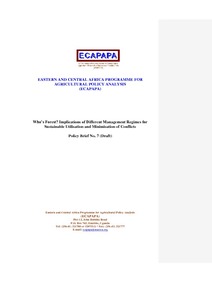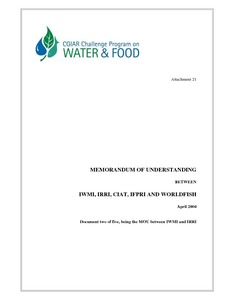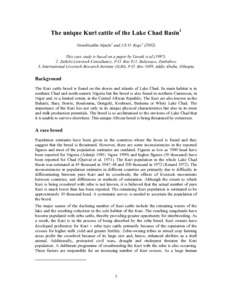Farmer-herder conflicts are enduring features of social life in the Sudano-Sahelian zone.
A survey was carried out between August and December 2004 in four sites in Niger,
namely Bokki, Katanga, Sabon Gida and Tountoubé to determine the proximate and
long-term causes of…
At this point – just under half way (two years and six months) in the implementation of the first CPWF phase (and three years and eight months since inception began) governance and management processes are running smoothly, it is in reasonable financial health and technical processes – such as…
This introductory section covers the period since the submission of the last Mid-Term
Plan until present, and concentrates on the following areas:
> Principal areas of progress.
> Developments in 2005 and early 2006.
> Changes to the CPMT strategic…
This study aims to identify how women's capacity to become more involved in decision-making at the local level can be strengthened, particularly in terms of access to natural resources. It also aims to identify the structures through which women secure their systems of production. It…
The breadth and scope of the CGIAR Challenge Program on Water and Food’s (CPWF) mandate is substantial. This research strategy attempts to define this mandate by reviewing and refining its objectives and principles, and by clearly defining the path that will be followed to achieve its goals.…
This Policy Brief presents some of the lessons learned from research work related to the search for appropriate mechanisms to manage forest resources, and conflicts arising from contested rights to forest resources in eastern and central Africa (ECA).
Ann Degrande of ICRAF in Cameroon tells Martha Chindong how families can benefit from cultivating wild fruit tree species near their homes.
Researcher Oscar Eyog Matig explains how intercropping of trees and cereal crops, combined with water harvesting, has restored degraded land in north Cameroon.
In the months since approval in November 2002, the Challenge Program on Water and Food
(CPWF) has evolved at a tremendous pace. Much has been achieved. Governance, management, personnel and procedures are in place and operational. The first call for proposals under the competitive…
The Kuri cattle breed is found on the shores and islands of Lake Chad. Its main habitat is in southern Chad and north-eastern Nigeria but the breed is also found in northern Cameroon, in Niger and, to a limited extent, in the Central African Republic. The Kuri are also known as the Baharie, Bare…
The health of nomadic pastoralists is influenced by factors specific to their way of life.
Nomadic pastoralists depend on their livestock for subsistence, especially on the livestock’s
milk. Veterinary services provide vaccination against feared livestock diseases such as
…

